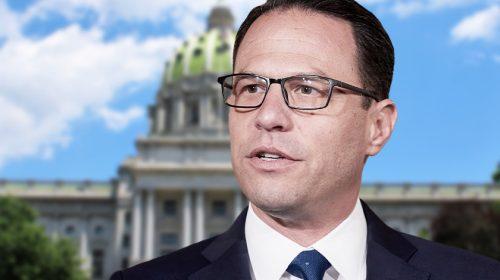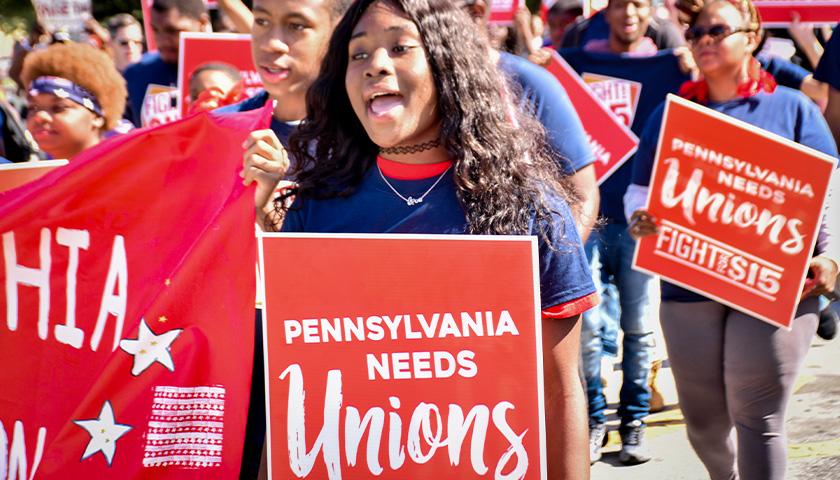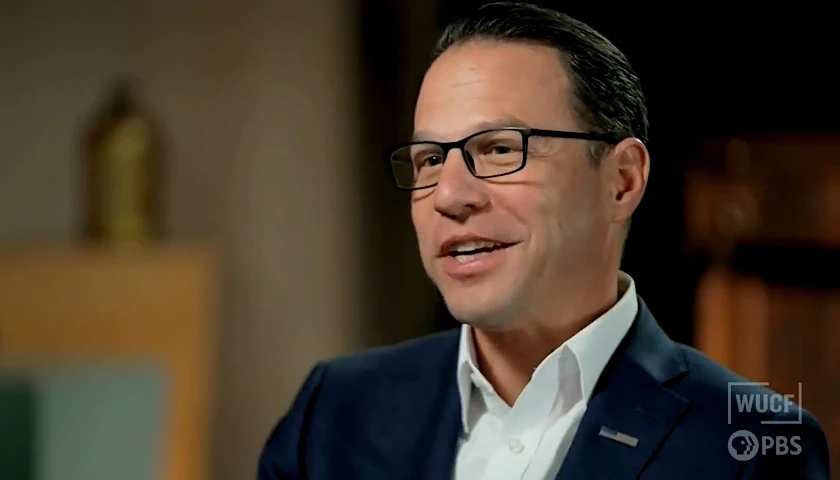Unions donated copiously to Pennsylvania Governor Josh Shapiro (D) during last year’s gubernatorial campaign and they’ll reap a handsome reward if the legislature approves a particular item in Shapiro’s proposed budget.
The Fiscal Year 2023-24 spending plan includes a $1,274,000 initiative to increase by one-third the number of labor law compliance investigators at the commonwealth’s Department of Labor and Industry. The text of Shapiro’s proposal expresses concern that more labor cases need to be probed and that businesses need more education on workers’ right to organize.
In Shapiro’s budget address last week, the chief executive all but declared that he intends this policy to lead to the unionization of more workplaces in the Keystone State.
“When it comes to dignity and respect, all workers should have the right to organize and bargain collectively,” he told members of the General Assembly. “Hear me on this – so long as I am your governor, Pennsylvania will never be a right to work state.”

What he means by that last promise is that Pennsylvania will not adopt a law preventing employment contracts that force a worker to pay dues to a union even if the worker doesn’t wish to join that organization. Currently, Pennsylvania is one of 23 states that allow forced unionism, though that number could soon rise to 24 if Democratic lawmakers in Michigan succeed in repealing their state’s right-to-work law.
While professing hope that the state will investigate more businesses for alleged labor violations, Shapiro speculated that Pennsylvania entities are getting away with illegal union-busting.
“To those employers who lobby against this funding, I have a simple question: What are you afraid we might find?” he said.
In Pennsylvania, as in many states, labor organizations wield power out of proportion to their actual numbers. Last year, only 10.1 percent of wage and salary earners nationwide affiliated with a union while 12.7 percent of Pennsylvania workers counted themselves as union members.
Nonetheless, these associations are among Shapiro’s most significant political benefactors. Data compiled by the nonprofit Transparency USA shows the American Federation of State, County and Municipal Employees donated $1.25 million to his 2022 campaign. The Greater Pennsylvania Regional Council of Carpenters was the campaign’s second largest big-labor donor, bestowing $1 million. Other unions contributing to Shapiro’s run included the Pennsylvania State Education Association ($775,000), the Service Employees International Union ($750,000), the American Federation of Teachers ($500,000), the Laborers International Union of North America ($500,000) and the International Brotherhood of Electrical Workers ($450,000).
An initiative to spend more taxpayer money to aid unions may face some hurdles getting through the budget process. Shapiro will need bipartisan coalescence to pass his fiscal agenda given that Democrats marginally control the state House of Representatives and Republicans run the state Senate. (Still, the governor could attempt to sway pro-union GOP state senators in the Philadelphia and Scranton suburbs.)
While the governor has made clear his interest in supporting unions, some experts on labor-management relations worry that labor associations often acquire ironclad power to represent workforces who would rather disaffiliate from them.
“If employees in a workplace — public, private, wherever — decide that, hey look, this corporate big-labor is not representing us, there’s not really a mechanism to help them push back,” Center for Independent Employees Senior Vice President Keith Williams told Lowman Henry of Lincoln Radio Journal in Harrisburg last week. “Once a union is in a workplace, it’s very difficult to get them out and employees don’t necessarily have the resources or the expertise to make that happen.”
Williams’s nonprofit has assisted many employee staffs in numerous states with union decertification campaigns. He said one major problem facing workers who desire individual negotiation or an independent local union rather than big-labor representation is that periodic reauthorization votes typically aren’t required once a union has gained collective-bargaining rights at a workplace. Should workers develop a consensus in favor of decertification, they often find the path to that outcome labyrinthine and toilsome.
“There’s a very complicated process to get [unions] out, but it’s very easy to get them in,” he said.
– – –
Bradley Vasoli is managing editor of The Pennsylvania Daily Star. Follow Brad on Twitter at @BVasoli. Email tips to [email protected].
Photo “Pennsylvania Union Protest” by Joe Piette. CC BY-NC-SA 2.0.





